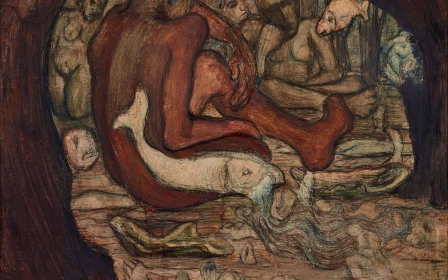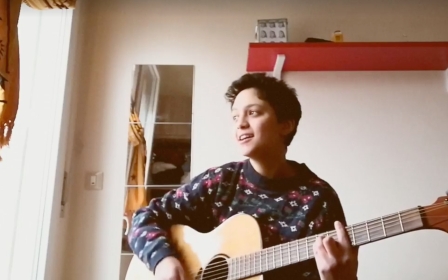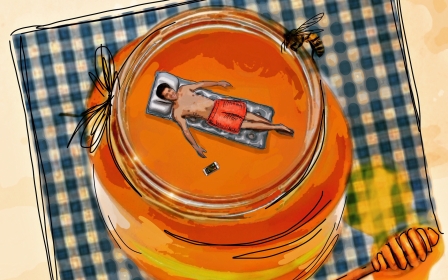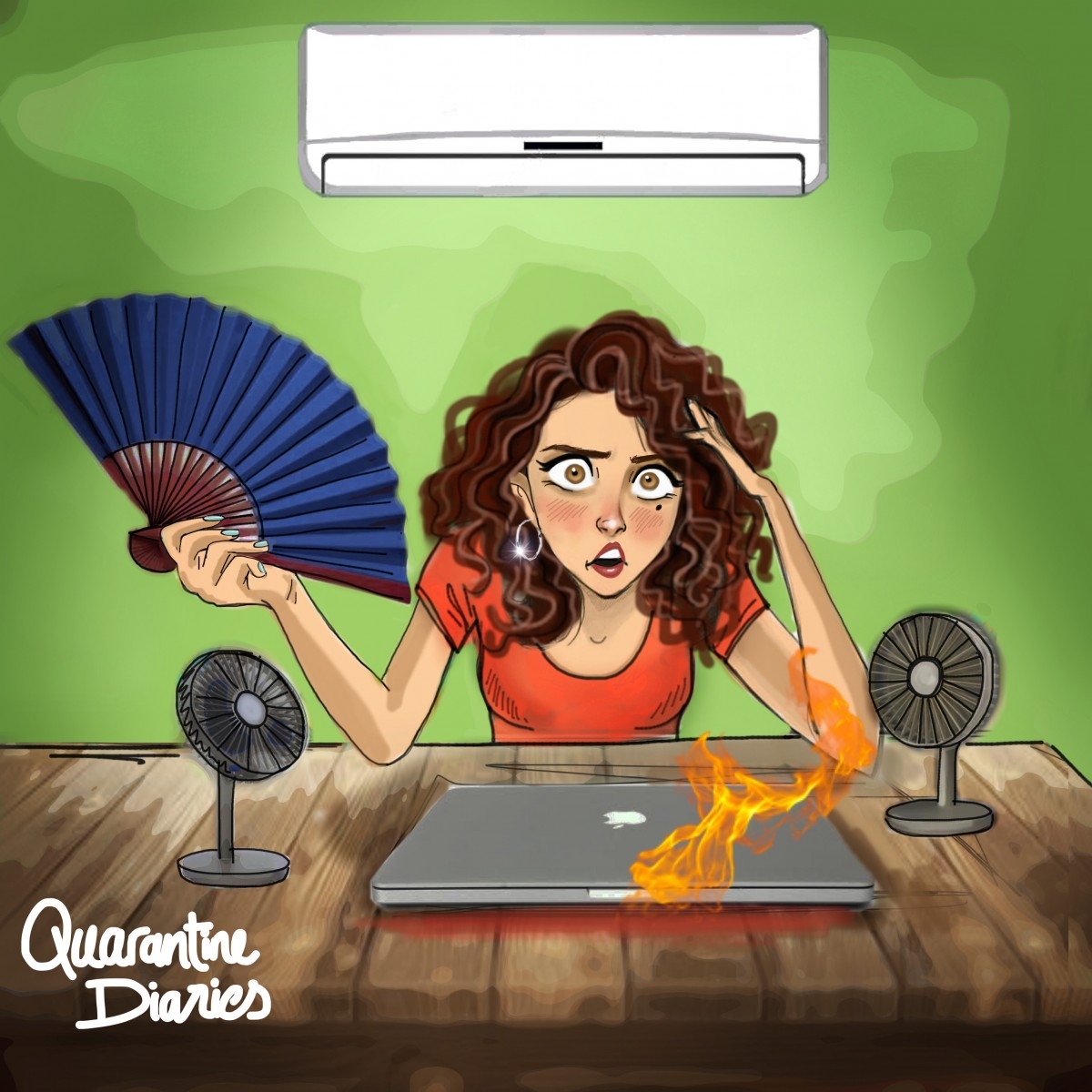
Quarantine diaries: Art that inspires power over a pandemic
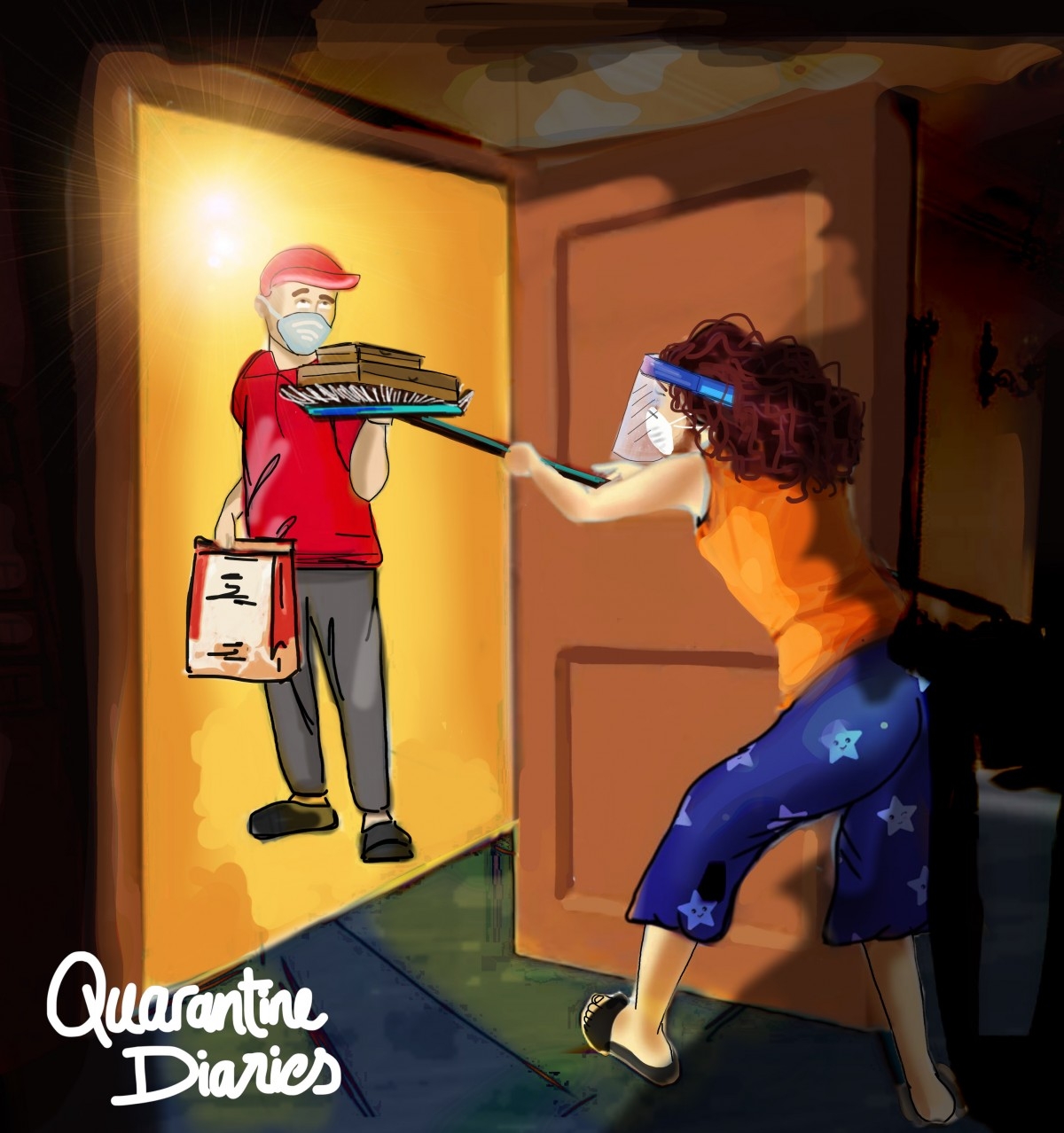
Around the world, writers and artists have found ways to memorialise the lockdowns their relative governments imposed following the Covid-19 breakout. Inspired by her own experiences, Egyptian artist Mai al-Naga created Quarantine Diaries, a web series featuring a young female character called Hoor in various relatable situations, like ordering food from restaurants and attempting to reduce the risk of potential infection.
"Within my household, my brothers would always be the ones wanting to order fast food," says al-Naga. "And then there would always be an argument, like 'No, you can't order fast food now, the food's going to be contaminated' and so on. So every time we'd try to develop different strategies to get the food without touching anything." (All images by Mai al-Naga)
"I was always trying to find the humour in these situations and bring them to the illustrations," adds al-Naga, a sixth year medical student at Cairo's Ain Shams university.
Al-Naga sourced much of her inspiration from her family, including her younger sister who she would spot attending her secondary school classes on the online platform Zoom from her still-crumpled bed. "I would photograph her and then use a few images for later reference... all the memes and jokes were about Zoom, and how you're still in bed and taking your Zoom lecture."
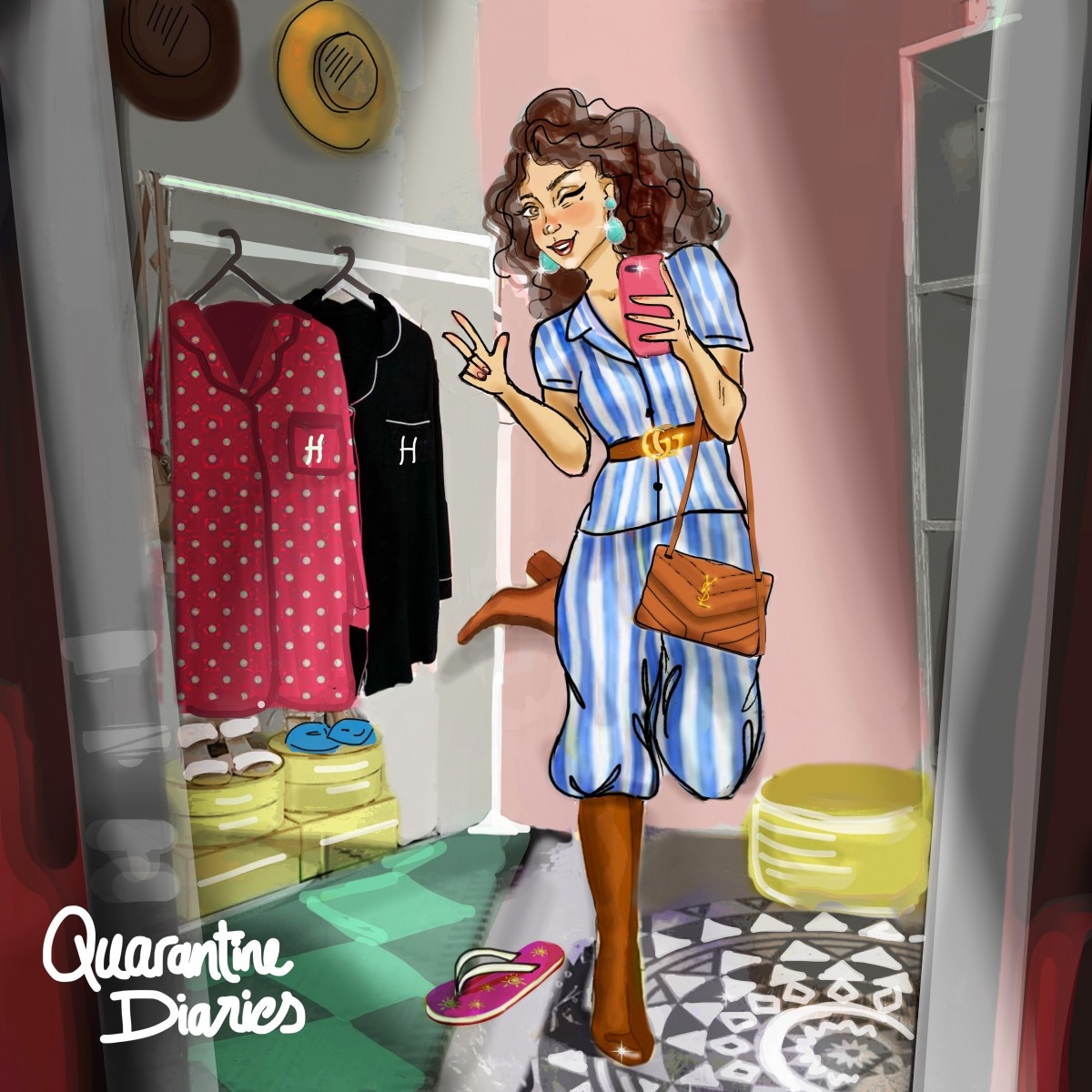
"I really wanted to create artwork that reflected on the time and I felt like a web comic is the ideal thing, creating a character that people could see and different scenarios would be more interesting than just having different artworks," says al-Naga. Hoor is seen here styling her pyjamas to reflect the rising popularity of night- and lounge-wear since more people started studying and working from home.
Despite the devastating global death counts due to the pandemic, al-Naga chose to keep her creations bright. "Personally, I believe art has a bigger role than just reflecting on the current situation... reflecting on it, but also adding, making you feel better about things. This is what I'm trying to show people through the artwork," she says.
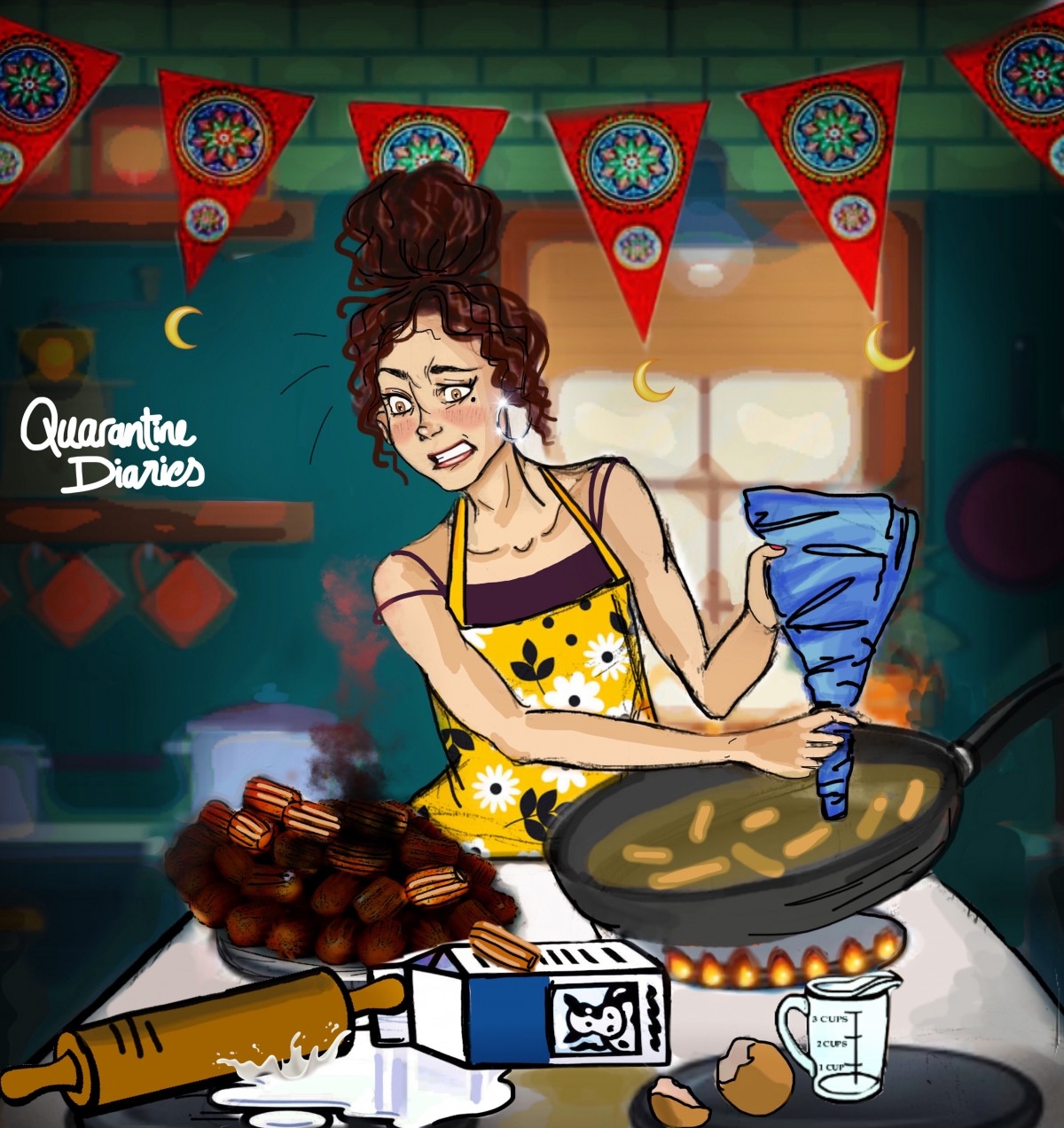
Following a series of ever-stricter curfews, Egypt was in national lockdown in May 2020, during the Muslim fasting month of Ramadan. Usually a month where food is in focus, many amateur cooks confined at home took to experimenting. "If anyone was trying to explore their talents, then this was definitely the number one hobby that people were trying to exploit," says al-Naga, whose character Hoor is seen here attempting to make balah el sham, a traditional Middle Eastern syrupy pastry.
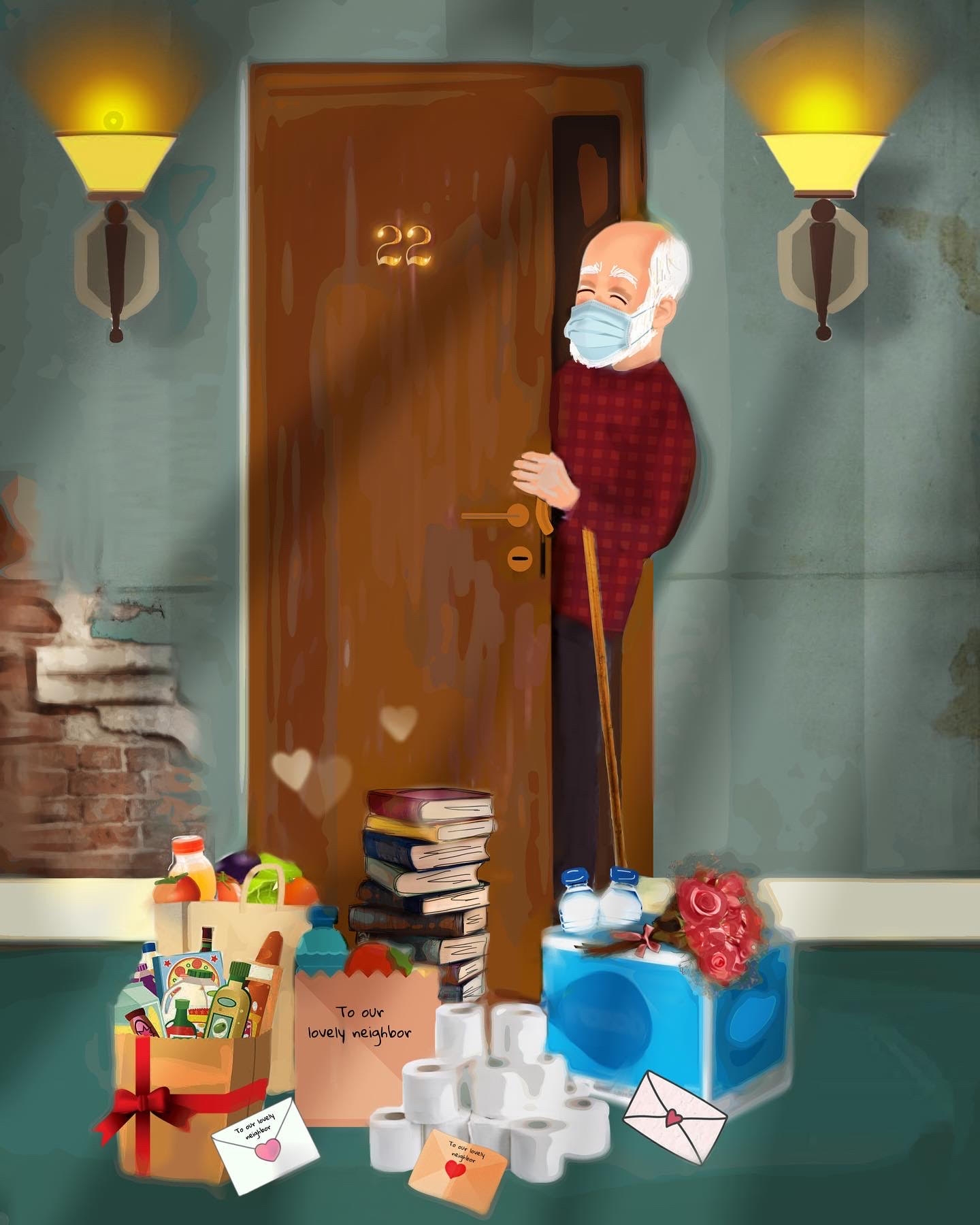
"Yes, we're going through this stuff, but also, if you look at it differently, if you see it in a slightly humorous way then you see that things aren't too bad," says al-Naga. "You're still bonding with your family or cooking and so on."
And there were some positives to be noted, like small acts of kindness performed around the world. In a set of separate Covid-inspired illustrations, al-Naga documents the ways in which neighbours reached out to help one another by buying groceries for those most vulnerable.
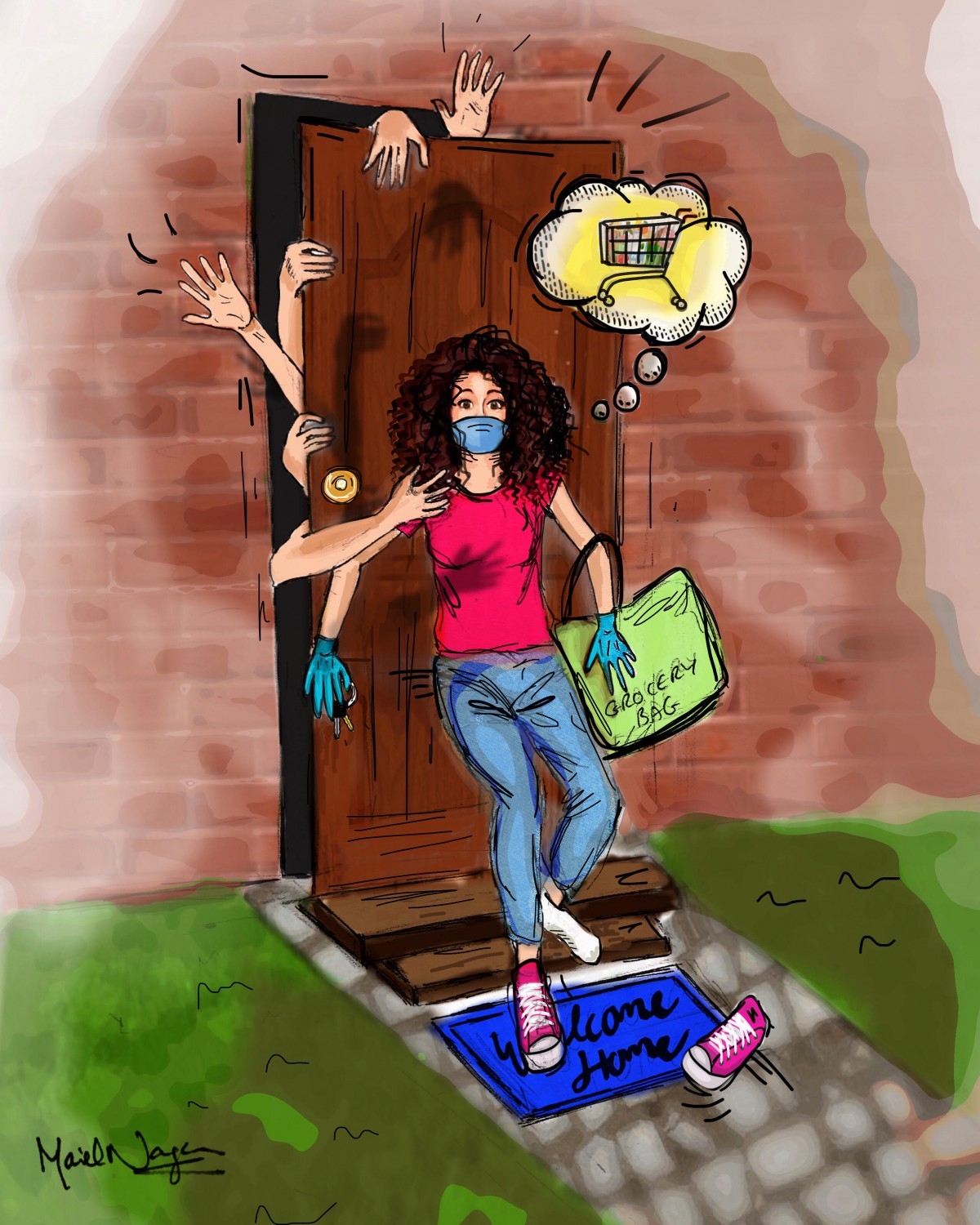
For those less at risk, leaving home was often seen as a treat. In al-Naga's family, the weekly supermarket shop became a coveted escape, even if it meant having to wash and sanitise the products on their return.
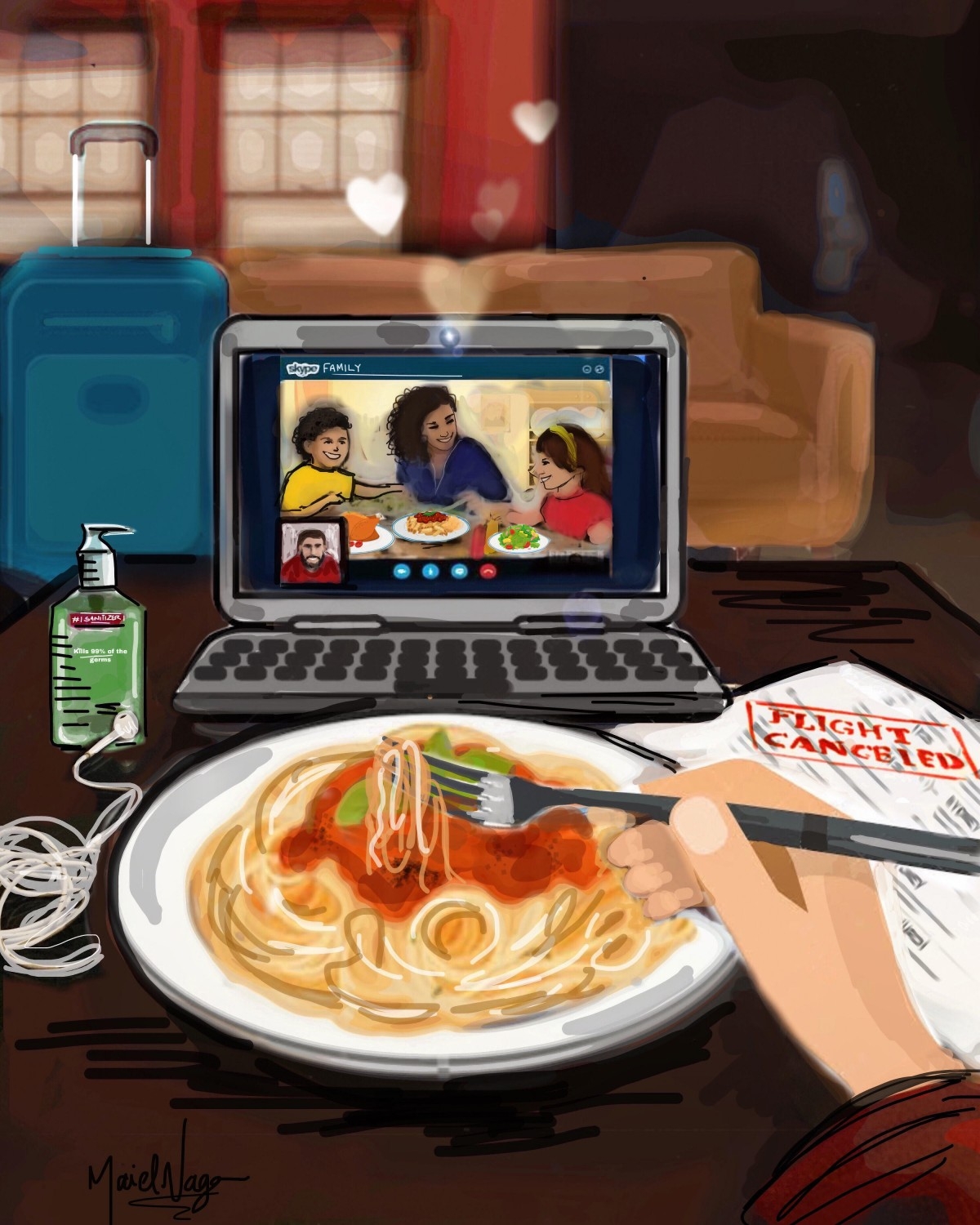
Though her tone is upbeat, al-Naga's illustrations are at times bittersweet. In this image, she recreated a scene where a family separated due to travel restrictions share a virtual meal. "This is a very personal one," says al-Naga, whose father works abroad and has been unable to return as frequently since the start of the pandemic. "It's ten times more difficult for him to come. And there's always the risk of not being able to return."
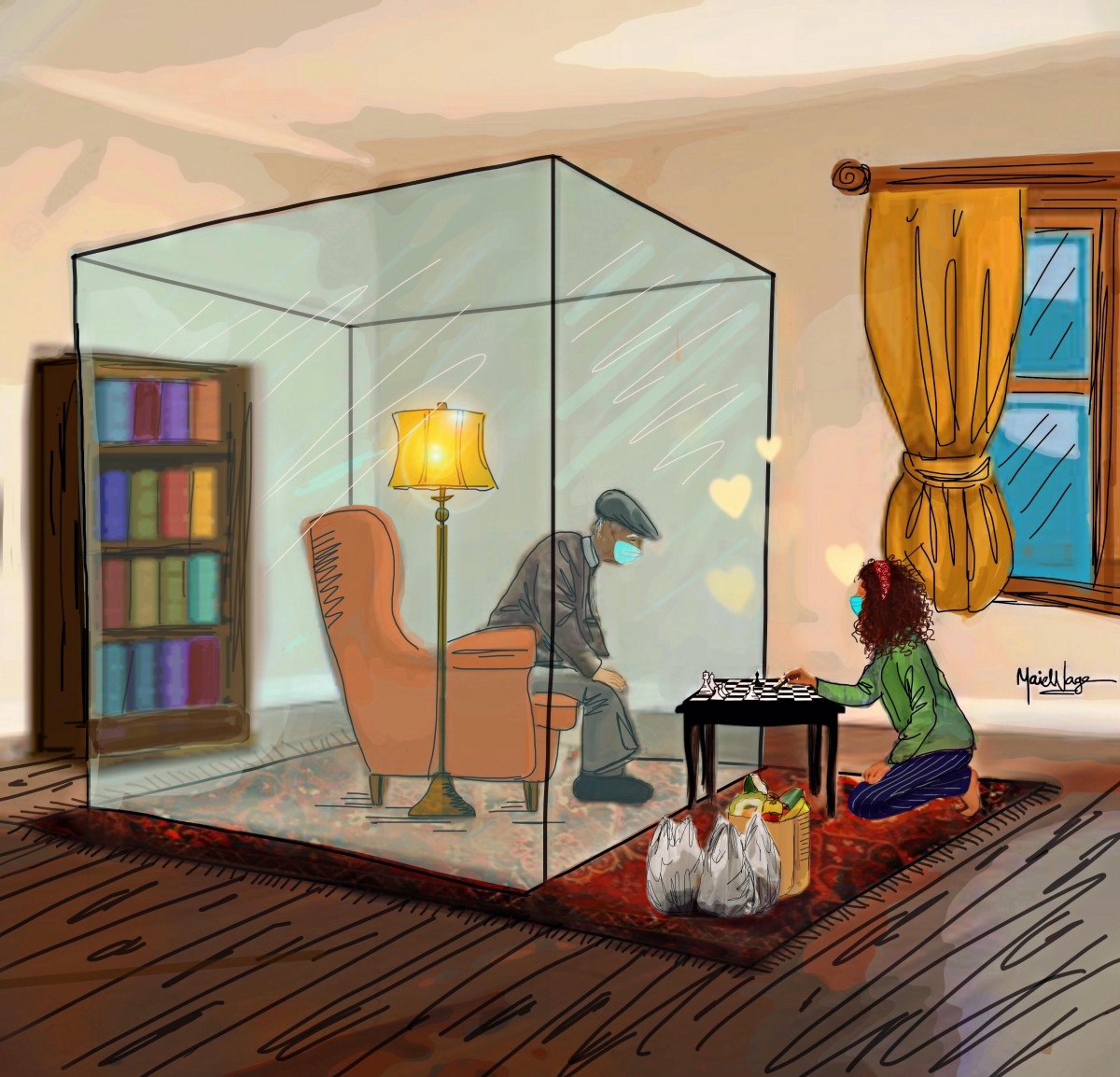
Al-Naga's favourite of her Covid illustrations shows a grandchild playing chess with her grandfather protected by a glass cubicle, expressing the strength of their bond despite the physical barrier dividing them.
"With my grandparents, I really want to visit them and I don't want it to be virtual, but there's also the risk. So I felt like having him in this glass cubicle and then with her playing chess with him is the greatest bonding activity... with precautions."
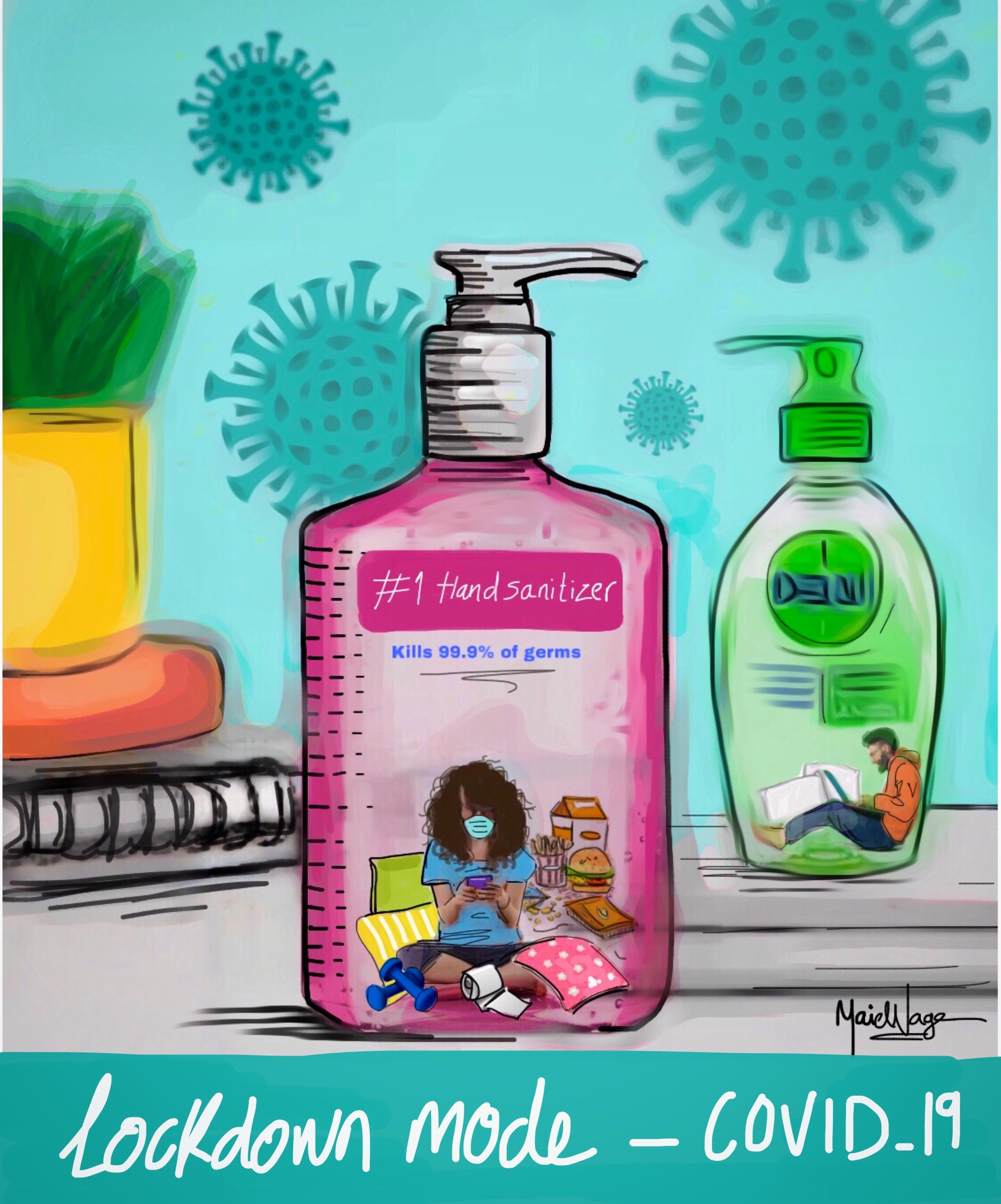
As the temporary restrictions became more longterm, like everyone, al-Naga too had to adapt, shifting much of her art-related work online. "I've explored new, different platforms to showcase artwork, and be able to send artwork to different places, all by staying at home, even exhibitions, online exhibitions, and all of that."
"I feel like people have really adapted to the idea of shifting everything online, whether it's businesses or artists and so on, has given me room to be able to explore the whole online platform on a deeper level."
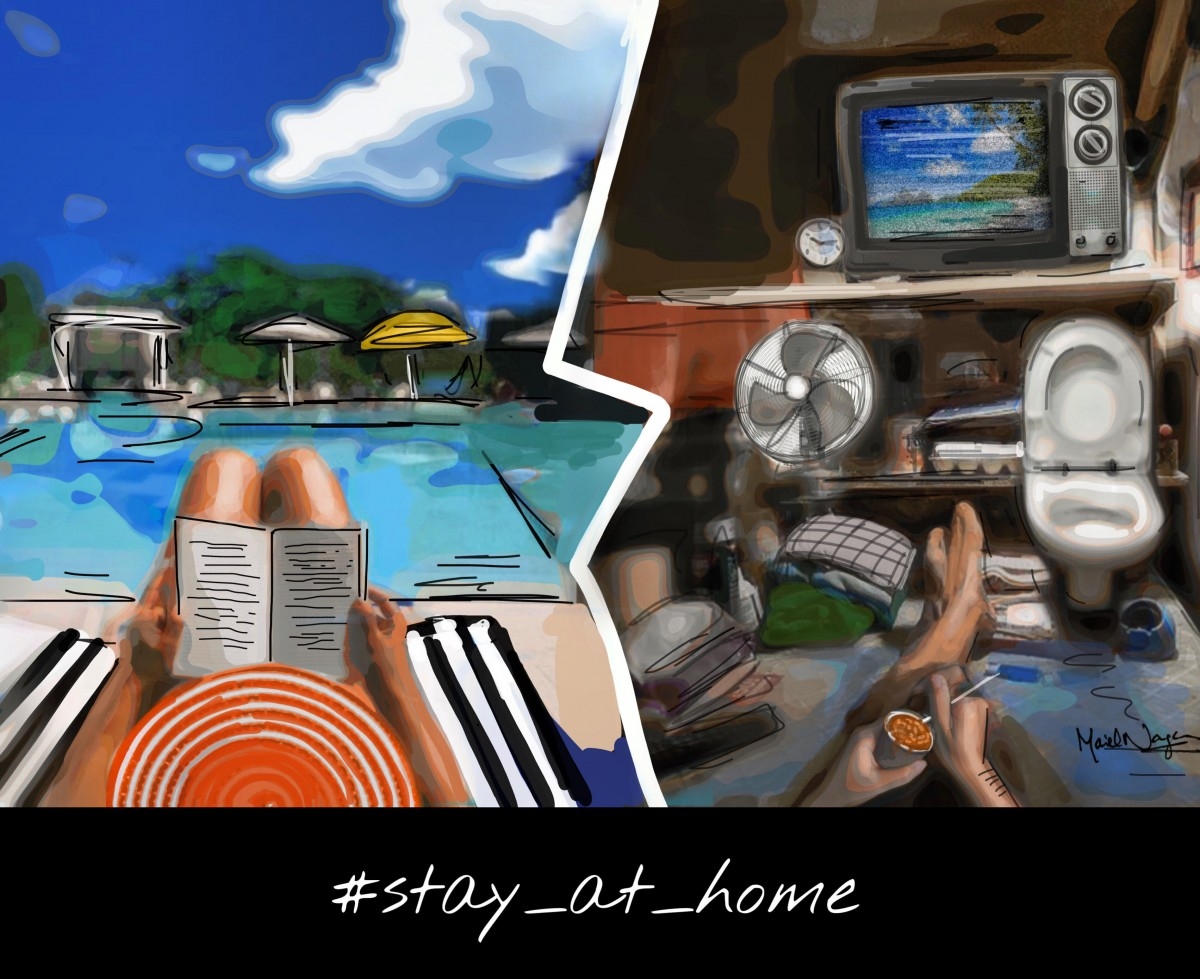
One theme prevalent in al-Naga's art is that of class divisions, which is reflected in this Covid illustration that was inspired by the Oscar-winning South Korean movie Parasite, which spotlights the disparity between the country's rich and poor. "I felt it was also very relevant to what was going on at the time, because I would see a lot of people complaining on Facebook about how they want to get out of the house and so on," she says.
"But also on the other side... the woman who comes to the house cleaning, I would hear about how things now are ten times more difficult. She can't make money as much as she did before, as she's lost her job in different houses and so on because of the increased risk... I felt like this is a point that I want to shed light on as well. That it's not just about you staying at home and being bored, it's different for other people."
This article is available in French on Middle East Eye French edition.
Middle East Eye delivers independent and unrivalled coverage and analysis of the Middle East, North Africa and beyond. To learn more about republishing this content and the associated fees, please fill out this form. More about MEE can be found here.


